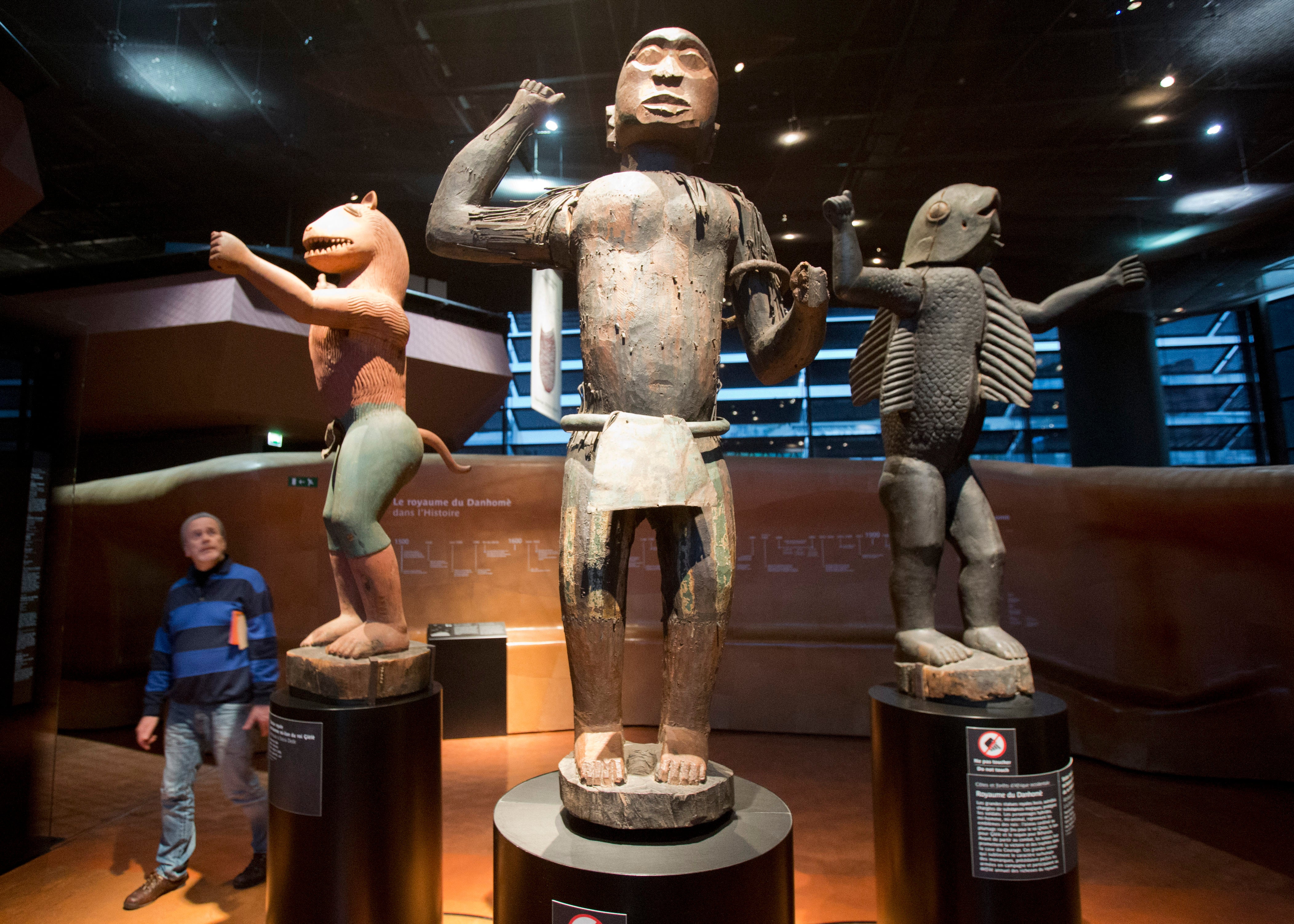129-year journey nears end as France returns Benin treasures
In a decision with potential ramifications across European museums, France is displaying 26 looted colonial-era artifacts for one last time before returning them home to Benin

Your support helps us to tell the story
From reproductive rights to climate change to Big Tech, The Independent is on the ground when the story is developing. Whether it's investigating the financials of Elon Musk's pro-Trump PAC or producing our latest documentary, 'The A Word', which shines a light on the American women fighting for reproductive rights, we know how important it is to parse out the facts from the messaging.
At such a critical moment in US history, we need reporters on the ground. Your donation allows us to keep sending journalists to speak to both sides of the story.
The Independent is trusted by Americans across the entire political spectrum. And unlike many other quality news outlets, we choose not to lock Americans out of our reporting and analysis with paywalls. We believe quality journalism should be available to everyone, paid for by those who can afford it.
Your support makes all the difference.In a decision with potential ramifications across European museums, France is displaying 26 looted colonial-era artifacts for one last time before returning them home to Benin
The wooden anthropomorphic statues, royal thrones and sacred altars were pilfered by the French army in the 19th century from Western Africa.
President Emmanuel Macron suggested that France now needed to right the wrongs of the past, making a landmark speech in 2017 in which he said he can no longer accept "that a large part of many African countries’ cultural heritage lies in France.” It laid down a roadmap for the controversial return of the royal treasures taken during the era of empire and colony. The French will have a final glimpse of the objects in the Musée du quai Branly–Jacques Chirac from 26-31 October.
French Culture Minister Roselyne Bachelot tried to assuage jitters among European museums, emphasizing that this initiative “will not create a legal precedent.”
A French law was passed last year to allow the restitution of the statues to the Republic of Benin, as well as a storied sword to the Army Museum in Senegal.
But she said that the French government’s law was intentionally specific in applying solely to the 27 artifacts. “(It) does not establish any general right to restitution” and “in no way calls into question” the right of French museums to hold on to their heritage.
Yet critics of such moves — including London’s British Museum that is in a decades-long tug-of-war with the Greek government over a restitution of the Elgin Marbles — argue that it will open the floodgates to emptying Western museums of their collections. Many are made up of objects acquired, or stolen, during colonial times. French museums alone hold at least 90,000 artifacts from sub-Saharan Africa.
The story of the “Abomey Treasures” is as dramatic as their sculpted forms. In November 1892, Colonel Alfred Dodds led a pilfering French expeditionary force into the Kingdom of Danhomè located in the south of present-day Benin. The colonizing troops broke into the Abomey Palace, home of King Behanzin, seizing as they did many royal objects including the 26 artifacts that Dodds donated to the Musée d’Ethnographie du Trocadéro in Paris in the 1890s. Since 2003, the objects have been housed at the Musée du quai Branly–Jacques Chirac.
One hundred and twenty nine years later, their far-flung journey abroad will finally end.
Benin’s Culture Minister Jean-Michel Abimbola called the return of the works, a “historic milestone,” and the beginning of further cooperation between the two countries, during a news conference last week. The country is founding a museum in Abomey to house the treasures that will be partly funded by the French government. The French Development Agency will give some 35 million euros toward the “Museum of the Saga of the Amazonians and the Danhome Kings” under a pledge signed this year.
The official transfer of the 26 pieces is expected to be signed in Paris on Nov. 9 in the presence of Macron and the art is expected to be in Benin a few days later, Abimbola said.
While locals say the decision is overdue, what’s important is that the art will be returned. “It was a vacuum created among Benin’s historical treasures, which is gradually being reconstituted,” said Fortune Sossa, President of the African Cultural Journalists Network.
___
Virgile Ahissou in Cotonou, Benin, and Sylvie Corbet in Paris contributed to this report